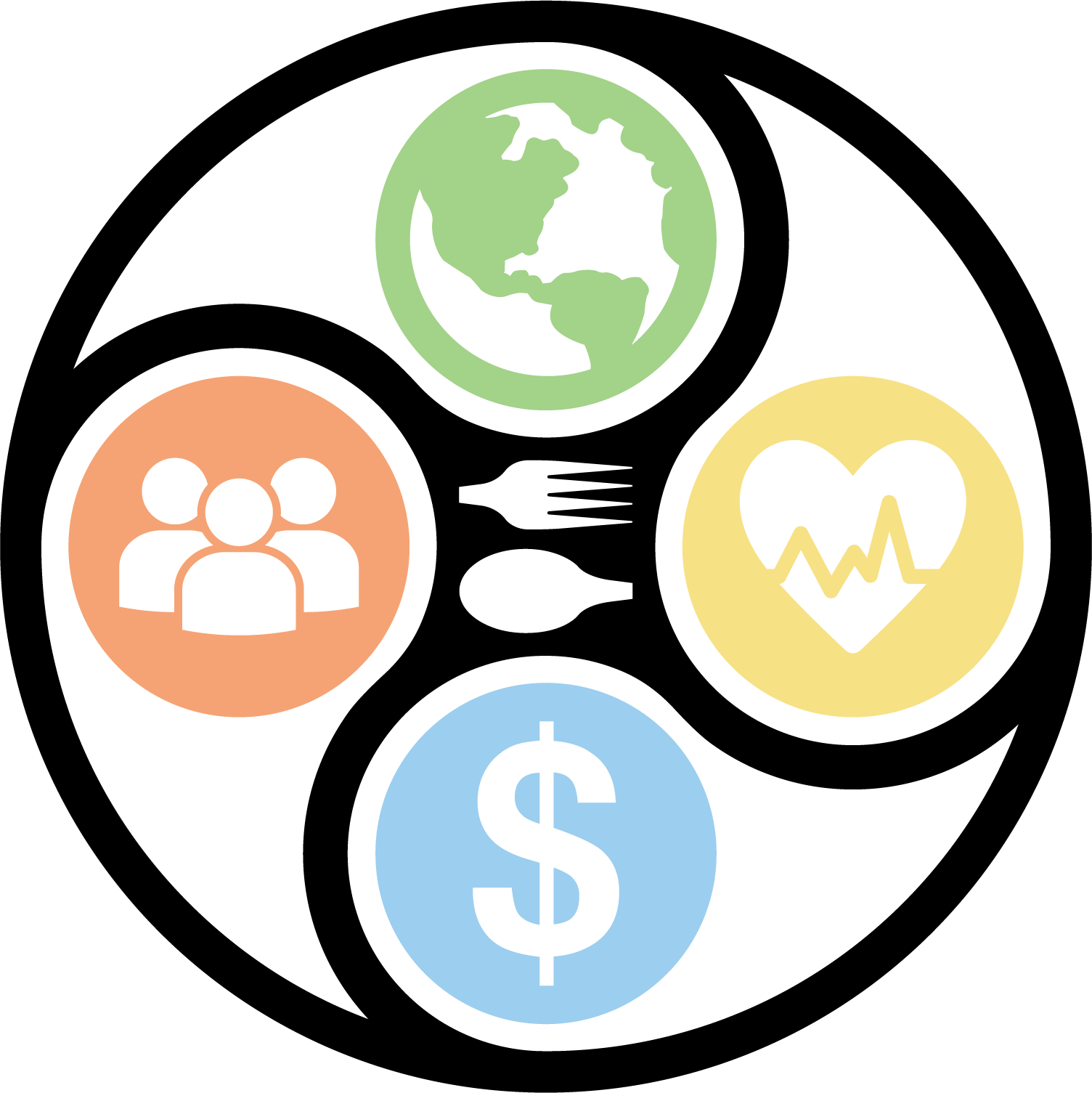The Leading A Sustainability Transition In Nutrition Globally (LASTING) Project aims to produce evidence-based recommendations, methods, and metrics for integrated sustainability assessment of dietary patterns. Our four-pillar approach to sustainability encompasses environmental, health, economic, and social outcomes.
Our mission is to put diets at the core of science and policy to improve all four pillars of sustainability simultaneously.

HOW WE WORK
The LASTING Project is comprised of a cohesive, experienced team of researchers with expertise in team science and a commitment to transdisciplinary work. The team represents the Friedman School, international and domestic research, and a diverse network of colleagues and collaborators spanning the globe. We are food systems scientists, nutrition epidemiologists, economists and policy experts that are committed to working together at the intersection of the four pillars, with a passion to generate new evidence that can inform change both in the US and globally.
Funding
The LASTING Project (2021-2025) is funded by the Friedman School Research Award for Interdisciplinary Nutrition Study (RAFINS) award, a generous anonymous donation to the school that provided an opportunity for the team to think about priorities for interdisciplinary research and broader needs, rather than responding to a more targeted call from traditional funders.
NEWS AND CONVERSATION
For the latest news, use our hashtag #LASTING on Twitter and LinkedIn

